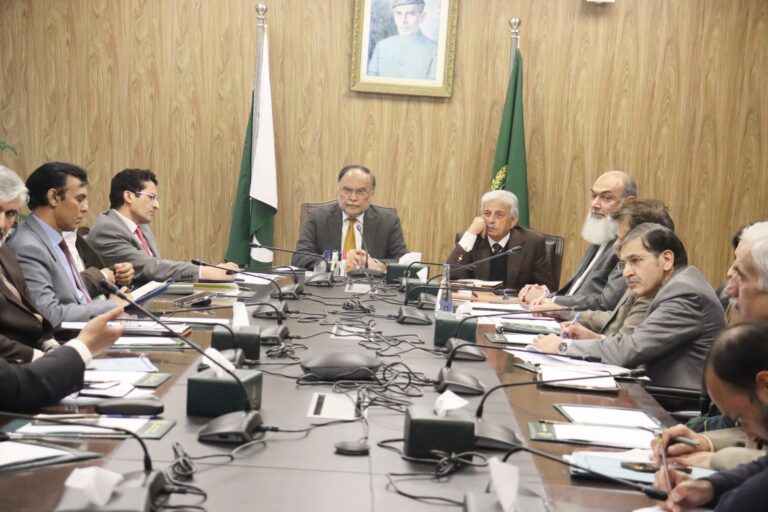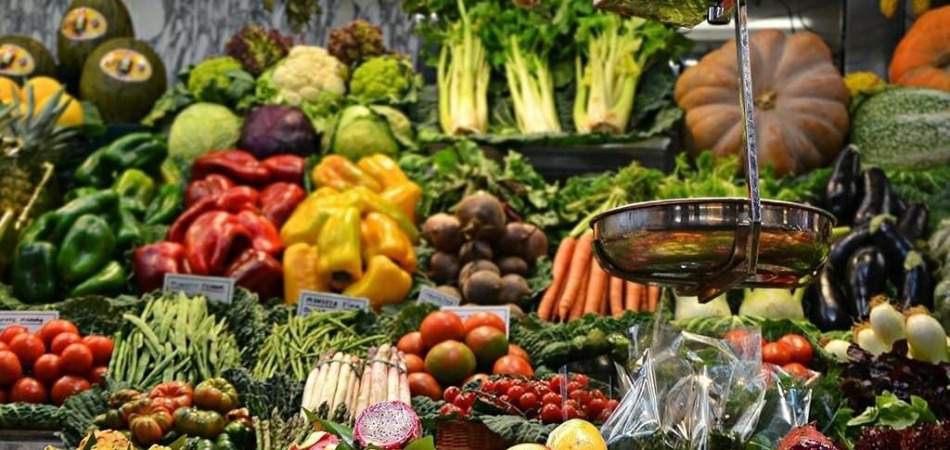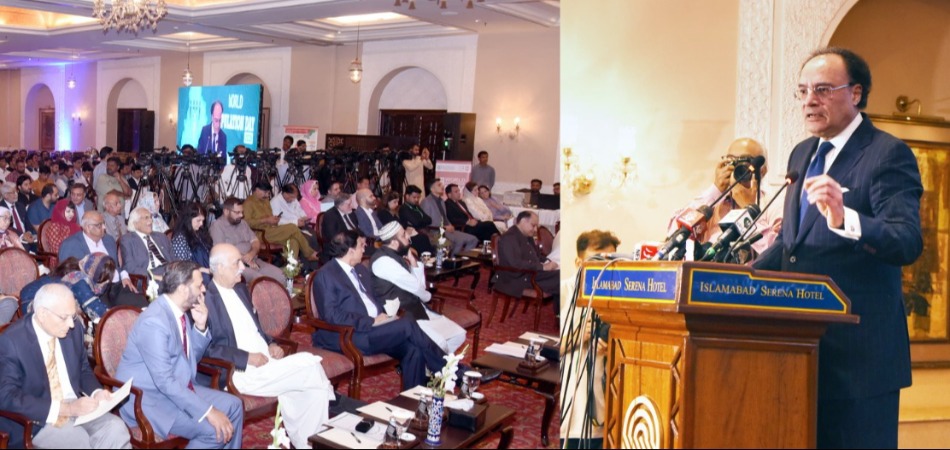Ahsan Iqbal calls for medium-term framework to reform sugar industry

MG News | January 01, 2025 at 11:22 PM GMT+05:00
January 01, 2025 (MLN): To deregulate the sugar industry, the Minister for Planning, Development, and Special Initiatives, Ahsan Iqbal, directed the development of a medium-term framework emphasizing data uniformity, crop zoning, and backward integration within the industry.
He passed these directives today while chairing a meeting of Prime Minister Shehbaz Sharif’s committee on sugar stocking, forecasting, and planning, as per the press release issued.
This committee, notified in December last year, was established to develop a foolproof system for monitoring and reporting the authentic position of sugar stocks to enable timely decisions on exports.
A senior member of the Pakistan Sugar Mills Association briefed the minister that in the previous years, the availability of accurate data had been a persistent problem for the association.
He acknowledged the role of the Federal Board of Revenue (FBR) as it worked with the Sugar Mills Association last year for the first time to review data.
He suggested taking data from one source to maintain accuracy.
The representative also said correct and uniform figures were not reported as most of the sugar mills do not provide data on time.
“Technically sugar prices should decrease after every successful export but by providing protection to consumers, the sugar mills have been paralyzed financially.”, he added.
Pakistan Sugar Mills Association also suggested fixing a date to review the 12 months’ performance of mills.
Lauding government efforts to stop sugar smuggling, he said that the government had maintained an effective track and trace system to stop smuggling.
Addressing the meeting, the Planning Minister said that it was imperative for all institutes of government to maintain effective coordination.
He also advised the stakeholders to establish coordination with the Space and Upper Atmosphere Research Commission (SUPARCO) for satellite-based data gathering.
Highlighting the importance of data uniformity and accuracy, the minister said, "The problem of data variance should be addressed promptly by involving experts and researchers".
"This will ensure that data sets used by all institutes are unified", he added.
Ahsan Iqbal further gave directions to concerned ministries to prepare a medium-term framework for the development of the agriculture industry.
“The Planning Ministry developed a cluster-based agriculture report under Vision 2025 in 2017-18.
It was completed in 2020 with the aim of producing analytical insights for agriculture policy-making, with a thorough examination of the sugar industry cluster,” he added.
Quoting the examples of competitive sugar mills across the world, he said that the world’s most productive mills have effective recovery rates but Pakistan’s sugar mills were inefficient in terms of recovery rates.
The minister said the three most important targets for the sugar industry should be recovering more sugar, producing surplus sugar and exporting surplus to other countries.
“By making a medium term policy for government to deregularize the sugar industry, the next 10 years can be spent following the planned vision,” he said.
As suggested by the minister, the committee would be chaired by chief statistical officer and must include representatives from Ministry of industries, FBR, Pakistan Sugar Mills association and SUPARCO.
The minister stressed, “Planning Ministry is dedicated to facilitating active forecasting and ensuring strategic decision-making to promote the development and deregularization of sugar industry".
Referring to the weak link between production and productivity, he said Pakistan was the fifth largest sugar producer in the world but in terms of yield, its ranking was alarmingly low.
The minister also urged maximizing the agricultural portfolio of Pakistan through crop zoning.
The minister further said whether it is edible oil, wheat, cotton or sugar sector that needs to be made self-sufficient, crop zoning can help local governments to designate areas of land for farming and protect them from incompatible land usage.
He also said that backward integration could help the sugar industries achieve faster growth as evident from the success of FMCGs that followed backward integration.
“A medium term master plan should cover at least 10 years and provide a vision regarding how much productivity is expected to gain from a specified area of land,” he added.
The minister asserted that the industries sector must get beyond production obsession and ensure backward integration, assuring the industrial stakeholders that their problems will be solved on priority.
He also affirmed government’s commitment to balance the need to support domestic sugar producers with ensuring adequate supply and stable prices for local consumers.
The PM’s Committee will analyze all data sources related to sugar production, consumption, and stocks, assessing the causes of variation across different data sources and their underlying assumptions.
It will also fix responsibility for presenting inaccurate data on sugar consumption, stocks, and surpluses during the preceding year, which led to delayed decisions on permissible export quantum.
Additionally, the committee will develop and present a foolproof mechanism to maintain credible data for evidence-based public policy decision-making.
Finally, it will suggest a medium-term framework for the sector, aiming to develop an efficient market for the product, yielding positive outcomes for consumers, industry, the economy, and the government.
The meeting was attended by Minister for Industries and Production Rana Tanveer Hussain, and Minister of State for Finance Ali Parvez Malik.
Copyright Mettis Link News
Related News
| Name | Price/Vol | %Chg/NChg |
|---|---|---|
| KSE100 | 134,299.77 290.06M |
0.39% 517.42 |
| ALLSHR | 84,018.16 764.12M |
0.48% 402.35 |
| KSE30 | 40,814.29 132.59M |
0.33% 132.52 |
| KMI30 | 192,589.16 116.24M |
0.49% 948.28 |
| KMIALLSHR | 56,072.25 387.69M |
0.32% 180.74 |
| BKTi | 36,971.75 19.46M |
-0.05% -16.94 |
| OGTi | 28,240.28 6.19M |
0.21% 58.78 |
| Symbol | Bid/Ask | High/Low |
|---|
| Name | Last | High/Low | Chg/%Chg |
|---|---|---|---|
| BITCOIN FUTURES | 118,140.00 | 119,450.00 115,635.00 |
4270.00 3.75% |
| BRENT CRUDE | 70.63 | 70.71 68.55 |
1.99 2.90% |
| RICHARDS BAY COAL MONTHLY | 97.50 | 0.00 0.00 |
1.10 1.14% |
| ROTTERDAM COAL MONTHLY | 108.75 | 108.75 108.75 |
0.40 0.37% |
| USD RBD PALM OLEIN | 998.50 | 998.50 998.50 |
0.00 0.00% |
| CRUDE OIL - WTI | 68.75 | 68.77 66.50 |
2.18 3.27% |
| SUGAR #11 WORLD | 16.56 | 16.60 16.20 |
0.30 1.85% |
Chart of the Day
Latest News
Top 5 things to watch in this week
Pakistan Stock Movers
| Name | Last | Chg/%Chg |
|---|
| Name | Last | Chg/%Chg |
|---|




 MTB Auction
MTB Auction